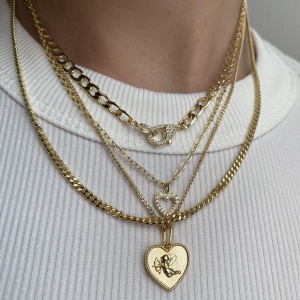Traditional Nigerian Attire Fashionable Choices for Ladies

Embracing Tradition: Exploring Traditional Nigerian Attire for Women
A Rich Cultural Heritage
Nigerian traditional attire reflects the rich cultural heritage of the diverse ethnic groups within the country. From the Yoruba to the Igbo, and the Hausa to the Fulani, each ethnic group has its unique style of traditional attire, often characterized by vibrant colors, intricate patterns, and elaborate designs.
Ankara Fabrics: The Heart of Nigerian Fashion
At the heart of Nigerian traditional attire lies Ankara fabric. Known for its bold and colorful patterns, Ankara fabric is a staple in Nigerian fashion. Whether it’s a flowing gown, a stylish skirt, or a tailored blouse, Ankara fabric adds an unmistakable African flair to any outfit, making it a popular choice among Nigerian women.
Gele: The Crown of Elegance
No traditional Nigerian outfit is complete without Gele. Gele is a large headwrap made from a stiffened fabric that is intricately folded and wrapped around the head to create a stunning crown-like shape. Gele not only adds a touch of elegance to the outfit but also serves as a symbol of cultural pride and identity.
Aso Ebi: Uniting Through Fashion
Aso Ebi, which translates to “family cloth,” is a tradition where groups of people wear matching outfits to signify solidarity and unity during special occasions such as weddings, birthdays, or cultural festivals. Aso Ebi outfits often feature coordinating fabrics and designs, creating a visually stunning display of unity and community spirit.
Adire: The Art of Indigo
Another traditional fabric that holds significance in Nigerian fashion is Adire. Originating from the Yoruba culture, Adire is a hand-dyed fabric made using a resist-dyeing technique, typically with indigo dye. Adire fabrics feature unique patterns and designs, ranging from intricate motifs to bold geometric shapes, making them a sought-after choice for Nigerian women’s attire.
Agbada: Symbol of Prestige
For special occasions and formal events, Nigerian women often opt for Agbada. Agbada is a flowing robe-like garment typically worn by men but has also become popular among women for its regal appearance and timeless elegance. Paired with matching Gele and accessories, Agbada creates a striking and dignified look that exudes prestige and sophistication.
Iro and Buba: Timeless Elegance
Iro and Buba is a traditional Nigerian attire consisting of a wrap-around skirt (Iro) and a blouse (Buba). This timeless ensemble is known for its versatility and elegance, making it a popular choice for women of all ages and backgrounds. Iro and Buba outfits come in various styles and fabrics, from simple and understated to lavish and ornate, allowing women to express their individual style while embracing tradition.
Kente: The Pride of Ghana
While not Nigerian in origin, Kente fabric holds significant cultural importance in West Africa, including Nigeria. Originating from Ghana, Kente is a brightly colored woven fabric made from silk or cotton and adorned with intricate patterns and symbolic motifs. Nigerian women often incorporate Kente fabric into their traditional attire, adding a touch of Ghanaian flair to their outfits and celebrating the cultural diversity of the region.
Evolving Traditions: Modern Interpretations
While traditional Nigerian attire remains deeply rooted in cultural heritage, it continues to evolve with modern influences. Today, Nigerian women embrace a fusion of traditional and contemporary styles, incorporating elements of Western fashion into their traditional outfits to create unique and innovative looks that reflect their personal style and identity.
Celebrating Identity Through Fashion
In essence, traditional Nigerian attire goes beyond mere clothing; it is a celebration of identity, heritage, and culture. For Nigerian women, wearing traditional attire is not just about looking fashionable; it is a way of honoring their roots, preserving their cultural heritage, and expressing pride in who they are. Read more about nigerian dresses for ladies








